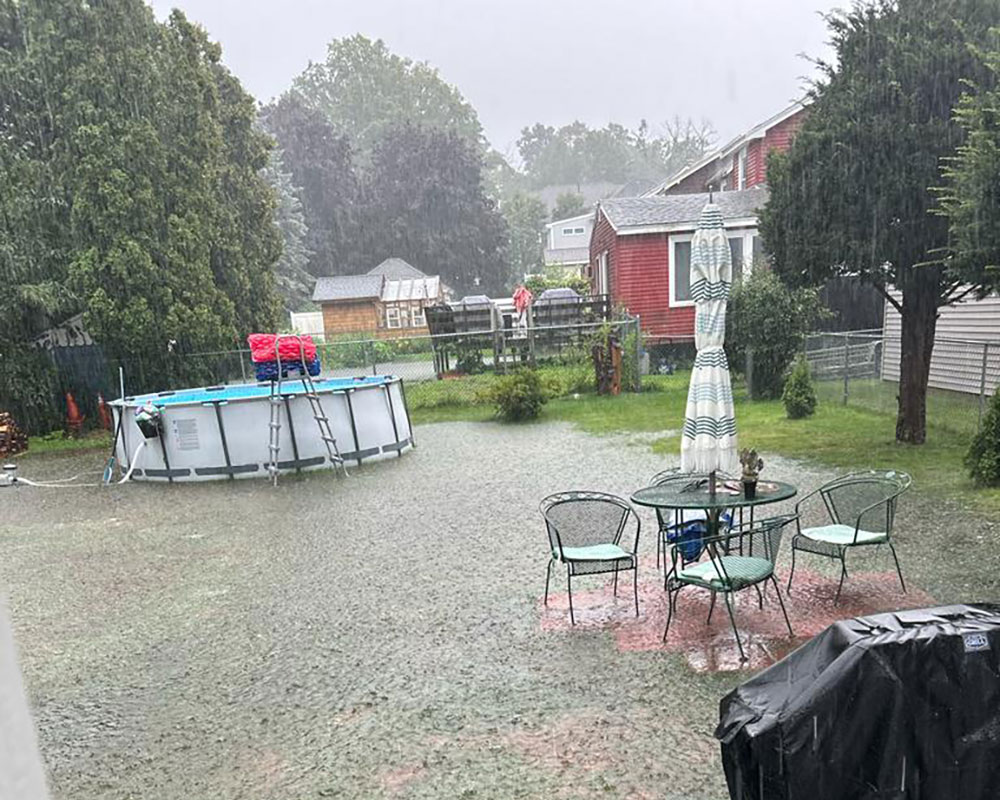Reporter’s note: WHAV intended “Why One Haverhill Zoning Board Member Voted ‘Yes’ on a Proposal Nearby Residents Opposed” to explain how the views, beliefs and experiences of a public official led her to vote a certain way.
Wood School residents said a zoning board member should face consequences for, what they believe, was a false accusation of racism after she told WHAV why she voted yes on a variance they opposed at a January meeting.
Board of Appeals member Kassie Infante told WHAV in a recent interview she was not calling them racist, but rather takes a “different angle” on how race affects housing access.
“Whether or not race is explicitly talked about, it’s always at play,” she said. “I never, once, called anyone racist.”
At the Jan. 17 meeting, residents successfully reduced a proposal from four homes to three, citing worries about rising flood levels from displaced groundwater, unsafe levels of traffic and the character of the long-settled Wood School area changing. A letter submitted on behalf of the Wood School Neighborhood Association described Infante’s comments as “accusing [residents] of implicit racism and ‘righteousness,’” which are not “not remotely related to the valid concerns neighbors raised at the meeting.”
Infante, one of three members who voted yes, told WHAV neighbors “absolutely” deserve to have sidewalks built and flooding mitigated. She said upgrades to the area’s infrastructure and more housing being built are “not mutually exclusive.”
“What I’m bringing to the discourse and conversation is really a systemic and regional outlook at the fact that people desperately need housing options, and the Wood School area is a wonderful place that people want to live in,” she said. “And it’s not a personal vendetta against the people that live there.”
It felt “exclusionary,” she said, when someone at the meeting brought up not wanting buildings overlooking her backyard, or when people called the area unsuitable for children. The right to be housed, she said, should take precedence.
The large number of studio, one- and two-bedrooms under construction in Haverhill make duplexes suitable for families even more important, according to Infante. “That means that families are systematically at a disadvantage in the housing market… If you add that on top of the historical exclusion that people of color have faced, pointing that out is not problematic,” she said.
Josiah Morrow submitted the neighborhood association’s statement, which he said he put together through telephone conversations with other residents. Morrow disputed that his quote appearing at the top of WHAV’s article on Infante’s decision to vote yes, which characterized Wood School as a quiet “enclave” in Bradford, had any connection to the concerns she raised.
“This kind of rhetoric tends to discourage participation in local government, which we need more of. There needs to be accountability for it,” he said.
Infante responded, “I think it’s really ironic that they’re talking about discouraging participation in local government, when local meetings tend to be very non-representative. There are rarely people of color in the room. There are rarely young people. There are rarely renters.”
One Neighbor Demands an Apology, Infante Lose Her Seat on the Board
Lisa McElroy said she wanted Infante to issue a public apology and lose her position on the zoning board for, in McElroy’s view, calling her neighborhood racist. Infante declined to apologize, saying, as a private citizen, “I have the right to speak to how the dynamics of a meeting, and the rhetoric that’s used there, impacts my lived experience as a young woman of color.”
Paul McElroy, Lisa McElroy’s husband, has a different understanding of racism than Infante. He described a troubling encounter at the Lawrence Registry of Motor Vehicles.
“The person was coming through the line checking everybody’s paperwork, and he wasn’t nice. He was pretty rude to everybody until he got to me, and then his whole demeanor changed,” McElroy said. “And then it went right back to square one when he went to the Spanish guy behind me. And I’m standing around looking at everybody like, does anybody see this?”
He emphasized that racism had nothing to do with their opposition to the development, saying Infante made false assumptions when she cast the neighborhood—which he described as diverse—in a negative light.
Lisa McElroy said, “We get called racist because we have flooding issues, draining issues, no sidewalks, we have more buildings being built around us, no schools on this side of the river, except for two, and they’re already filled to capacity. So, we’re in the wrong for caring about kids, about schools and teachers.”
Moreover, McElroy said she and her husband have fought hard to get to where they are now, adding they have both lived in “pretty tough neighborhoods.”
“For her to think that it’s only Black and brown people that can’t afford to buy places, she’s wrong. Everybody is struggling,” McElroy said. “It’s rough out there, but she can’t go around accusing us of being a racist neighborhood because we didn’t want two duplexes built on property that didn’t have the variance.”
At one point, Paul McElroy said six adults and two children were living in their three-bedroom ranch house.

